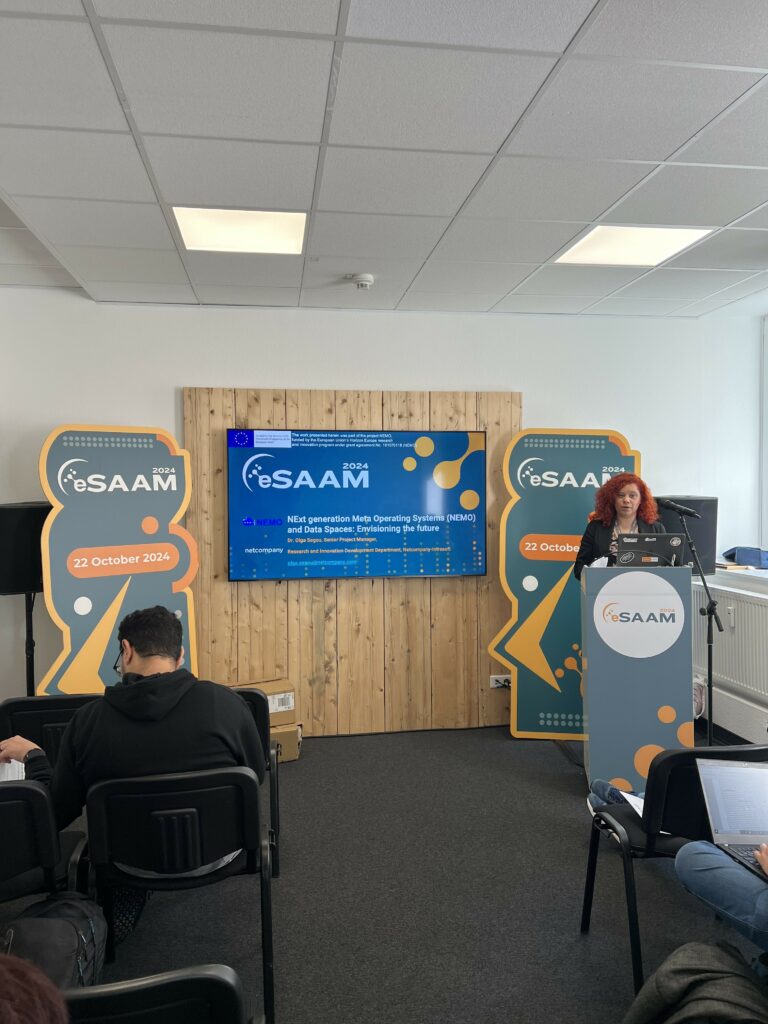The importance of data sovereignty and data valorisation in today’s digital economy has been highlighted by the EU’ s introduction of Data Spaces. This effort to bring improved data governance and data management together has encouraged Europe’s public and private sector to pilot a variety of novel concepts and architectures and empower the use of data in such a scale, with built-in compliance to the EU regulatory ecosystem. October marked the opportunity for the NEMO project to participate to the highly anticipated 4th Eclipse Security, Artificial Intelligence, Architecture, and Modelling Conference on Data Spaces and share our vision for the future (eSAAM 2024) in Mainz, Germany. Dr. Olga Segou, on behalf of Netcompany-Intrasoft and the NEMO consortium presented the modular NEMO architecture and detailed how it can interconnect with any given Data Space.
The NEMO consortium posited that traditional operating systems are not designed to support the growing diversity of devices and the seamless orchestration of resources in a highly dynamic environment. In such cases, opportunistic migration becomes the norm, rather than a rare exception. The NEMO metaOS was thus created to provide these capabilities across the continuum through hardware agnostic abstraction, holistic resource orchestration, optimization and intelligent scheduling. Therefore, our work became a complementary framework to Data Spaces; we showed that the NEMO metaOS can improve management and orchestration, while the Data Space can provide access to rich data sources. Connecting the two architectural paradigms became a significant and yet impactful challenge for us to address.
The eSAAM workshop presented a unique opportunity for us to show our progress. We highlighted how NEMO simplifies the on-boarding of a new Data Space connector on the metaOS through the use of plugins. Although the metaOS was not initially designed with Data Spaces in mind, the plugin-based architecture allowed the on-boarding of a new connector and its management through the NEMO Intent-based API. We further presented a case study of the FIWARE Industrial Data Space connector and guided the audience throughout the process for all the stages of validation, on-boarding, registering and provisioning through the Intent-based API. We also showed how NEMO enforces proper Access Control policies. Our vision for access control goes beyond simply providing authentication and authorization; NEMO can enforce additional policies (e.g. rate limiting, blacklisting etc.) and ensure they are respected by both communicating sides.
Our early results show that the NEMO architecture proved flexible and modular enough to take into account new developments in Data Spaces. The consortium considers that the two paradigms are highly complementary and can benefit from a closer integration between the metaOS and a standardized and trustworthy Data Space.

